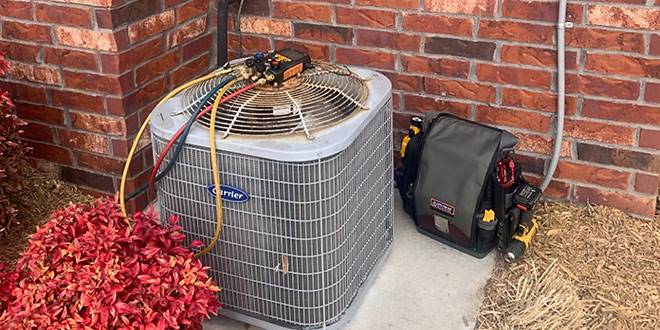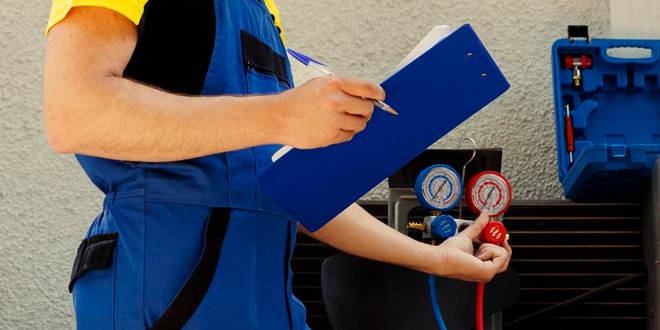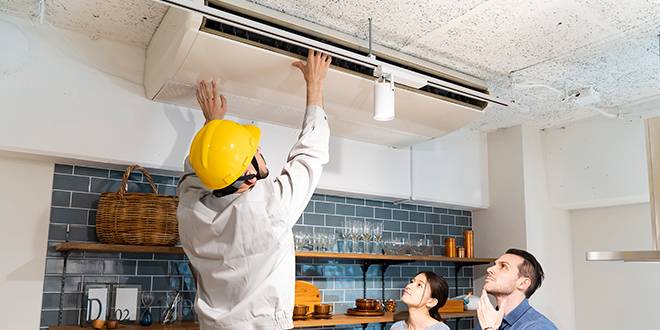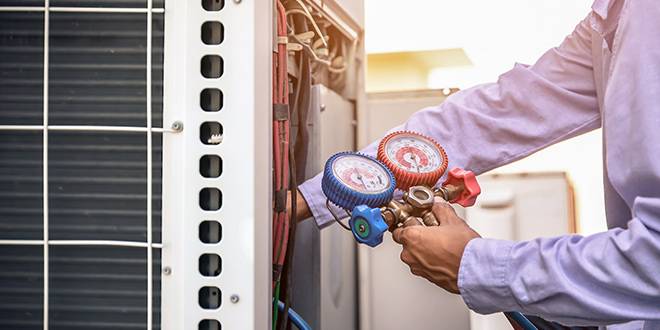
As temperatures rise, a reliable air conditioning system becomes essential for maintaining comfort in your home. However, like any complex system, your AC unit can experience malfunctions that compromise its efficiency and effectiveness. Diagnosing AC system malfunctions early can prevent minor issues from becoming major headaches and ensure your home stays cool and comfortable. In this guide, we’ll walk you through the common signs of AC malfunctions, steps you can take to diagnose issues yourself, and when it’s time to call in the professionals.
Common Signs of AC Malfunctions
Identifying the early signs of AC malfunctions can save you time and money. Here are some common indicators that your air conditioning system might be in trouble:
- Unusual Noises: If you hear grinding, squealing, or banging sounds coming from your AC unit, it could indicate a mechanical issue that needs attention.
- Inadequate Cooling: When your AC isn’t cooling your home as effectively as it used to, there could be several underlying issues, such as a refrigerant leak or a failing compressor.
- Frequent Cycling: If your AC unit is turning on and off more frequently than normal, it might be struggling to maintain the desired temperature due to issues like a clogged filter or an electrical problem.
- High Humidity Levels Indoors: An air conditioner that isn’t removing humidity properly can leave your home feeling sticky and uncomfortable. This often points to a malfunctioning unit.
- Bad Odors: Foul or musty smells coming from your AC vents could indicate mold growth or a burnt-out wire, both of which require immediate attention.
If you notice any of these signs, it’s important to address them promptly to prevent further damage. For more detailed information about common AC issues, check out our air conditioning services.

DIY Diagnosis Steps
Before calling in a professional, there are several steps you can take to diagnose common AC issues yourself. Here are some simple checks you can perform:
- Checking the Thermostat Settings: Ensure your thermostat is set to “cool” mode and the temperature is set lower than the current room temperature. Sometimes, a simple adjustment can resolve the issue.
- Inspecting the Air Filter: A clogged air filter can restrict airflow and cause your AC to malfunction. Check the filter and replace it if it’s dirty. Regular filter changes can prevent many common problems. For maintenance tips, visit our AC maintenance page.
- Examining the Circuit Breaker: If your AC unit won’t turn on at all, check the circuit breaker. If the breaker has tripped, reset it and see if the unit powers up. A continually tripping breaker may indicate a more serious electrical issue.
- Looking for Visible Leaks: Inspect the area around your indoor and outdoor units for signs of water or refrigerant leaks. Water around the indoor unit could mean a blocked drain line, while refrigerant leaks require professional repair.
These steps can help you determine whether the issue is something you can fix or if it’s time to call in a professional. If the problem persists after performing these checks, it’s best to seek expert assistance. For professional diagnosis and repair, visit our AC repair page.

When to Call a Professional
While some AC issues can be resolved with simple DIY steps, certain situations require the expertise of a professional technician. Here are some scenarios where calling a professional is necessary:
- Refrigerant Leaks: Handling refrigerant requires specialized knowledge and equipment. If you suspect a refrigerant leak, contact a professional immediately to avoid further damage to your system and ensure safe handling.
- Electrical Issues: Problems such as frequently tripping circuit breakers, burning smells, or issues with the thermostat wiring should be addressed by a licensed HVAC technician to prevent electrical hazards and further damage.
- Strange Noises: Persistent grinding, squealing, or banging noises often indicate serious mechanical issues that require professional diagnosis and repair.
- Inefficient Cooling: If your AC system is running continuously but failing to cool your home effectively, there may be issues with the compressor, evaporator coils, or other critical components that need professional attention.
- Routine Maintenance: Regular maintenance performed by a professional can prevent many common AC problems and extend the lifespan of your system. Schedule an annual maintenance check to keep your AC running smoothly. Learn more about our maintenance services here.
- Installation of a New Unit: If your AC system is outdated and requires frequent repairs, it might be more cost-effective to install a new, energy-efficient unit. Our professionals can help you choose the right system for your home and ensure proper installation. Check out our AC installation services.
By recognizing when to call a professional, you can ensure your AC system receives the proper care and attention it needs to operate efficiently. For expert assistance, contact us here.
Preventive Maintenance Tips
Preventive maintenance is key to keeping your AC system running efficiently and avoiding unexpected breakdowns. Here are some essential tips to ensure your system stays in top shape:
- Regular Filter Changes: Replace your air filter every 1-3 months, depending on usage and the type of filter. A clean filter improves airflow and helps your AC system run more efficiently.
- Seasonal Inspections: Schedule professional inspections at least twice a year, ideally before the cooling and heating seasons. During these inspections, a technician can identify and address potential issues before they become major problems. Learn more about our comprehensive maintenance services here.
- Keep the Outdoor Unit Clean: Ensure the outdoor unit is free from debris, leaves, and grass clippings. Clean the area around the unit to maintain proper airflow and prevent overheating. Additionally, gently hose down the unit’s coils to remove dirt and dust buildup.
- Check and Clear the Drain Line: Inspect the condensate drain line periodically to ensure it is not clogged. A clogged drain line can cause water damage and reduce the efficiency of your AC system. Use a mixture of vinegar and water to clear any blockages.
- Monitor Thermostat Settings: Set your thermostat to a consistent temperature and avoid frequent adjustments, which can strain the system. Consider upgrading to a programmable thermostat for better energy efficiency and convenience.
- Inspect Ductwork: Check your home’s ductwork for any leaks or gaps, and seal them properly to prevent cooled air from escaping. Properly sealed ducts enhance the efficiency of your AC system and improve indoor air quality.
By following these preventive maintenance tips, you can extend the lifespan of your AC system and enjoy reliable cooling throughout the hot months. For more information on maintaining your AC system, visit our air conditioning maintenance page.

Conclusion
Keeping your AC system in top condition is essential for maintaining a comfortable and energy-efficient home. By recognizing the common signs of AC malfunctions, performing basic DIY diagnostic steps, and knowing when to call a professional, you can prevent minor issues from escalating into costly repairs. Regular preventive maintenance is key to ensuring your system’s longevity and optimal performance.
If you experience any issues with your air conditioning system or need professional maintenance and repair services, don’t hesitate to reach out to us at Cartwright Heat & Air. Our experienced technicians are here to help you keep your home cool and comfortable all year round. For more information, check out our air conditioning services, repair services, installation services, maintenance services, or contact us directly.
Stay cool and comfortable with Cartwright Heat & Air!








